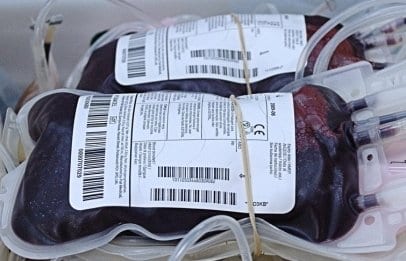
When Canadian Blood Services (CBS) claimed that Canadian blood supply was “critically low” last week, I had to stop myself from tearing out my hair in a rage.
In 2013, CBS changed its discriminatory policy of banning blood from “men who have had sexual contact with another man (MSM) since 1977 from donating blood.”
The change reduced the time period to five years, instead of a life ban, which, while a step in the right direction, still does not address the discriminatory nature of the policy.
“Canadian Blood Services may consider further reducing the time frame of the deferral to 1 year,” a new CBS survey says. CBS is conducting a public survey asking respondents about the proposed change to a one-year ban instead of five. This is a chance to have your say about the policy.
Here’s a little bit of context of where HIV infection rates sit in Canada, according to the Public Health Agency of Canada (PHAC):
PHAC reported that in 2012, 2,062 HIV cases were reported up to the end of the year, a 7.8% decrease from 2011 reports “and is the lowest number of annual HIV cases since reporting began in 1985.”
“In 2012, 50.3% of all adult (≥15 years) positive HIV test reports with known exposure category were attributed to the MSM exposure category; in adult males alone, the MSM exposure category accounted for 65.1% of positive HIV test reports,” the PHAC report continues.
“The second most reported exposure category among adults in 2012 was heterosexual contact, at 32.6% of case reports; 13.2% were attributed to heterosexual contact among people born in a country where HIV is endemic (Het-Endemic), 9.9% were attributed to heterosexual contact with a person at risk (Het-Risk), and 9.6% were attributed to having heterosexual contact with someone with no identified risk (NIR-Het).”
I have absolutely no contention with the numbers, or even a policy that prohibits people who engage in high-risk activities from donating. Anyone — heterosexual, homosexual or beyond — can contract HIV.
I, like many men who have sex with men, am low- to no-risk, tested regularly, and would donate blood as often as possible if these discriminatory policies were lifted. Until then . . . blood: it’s not in me to give.


 Why you can trust Xtra
Why you can trust Xtra


